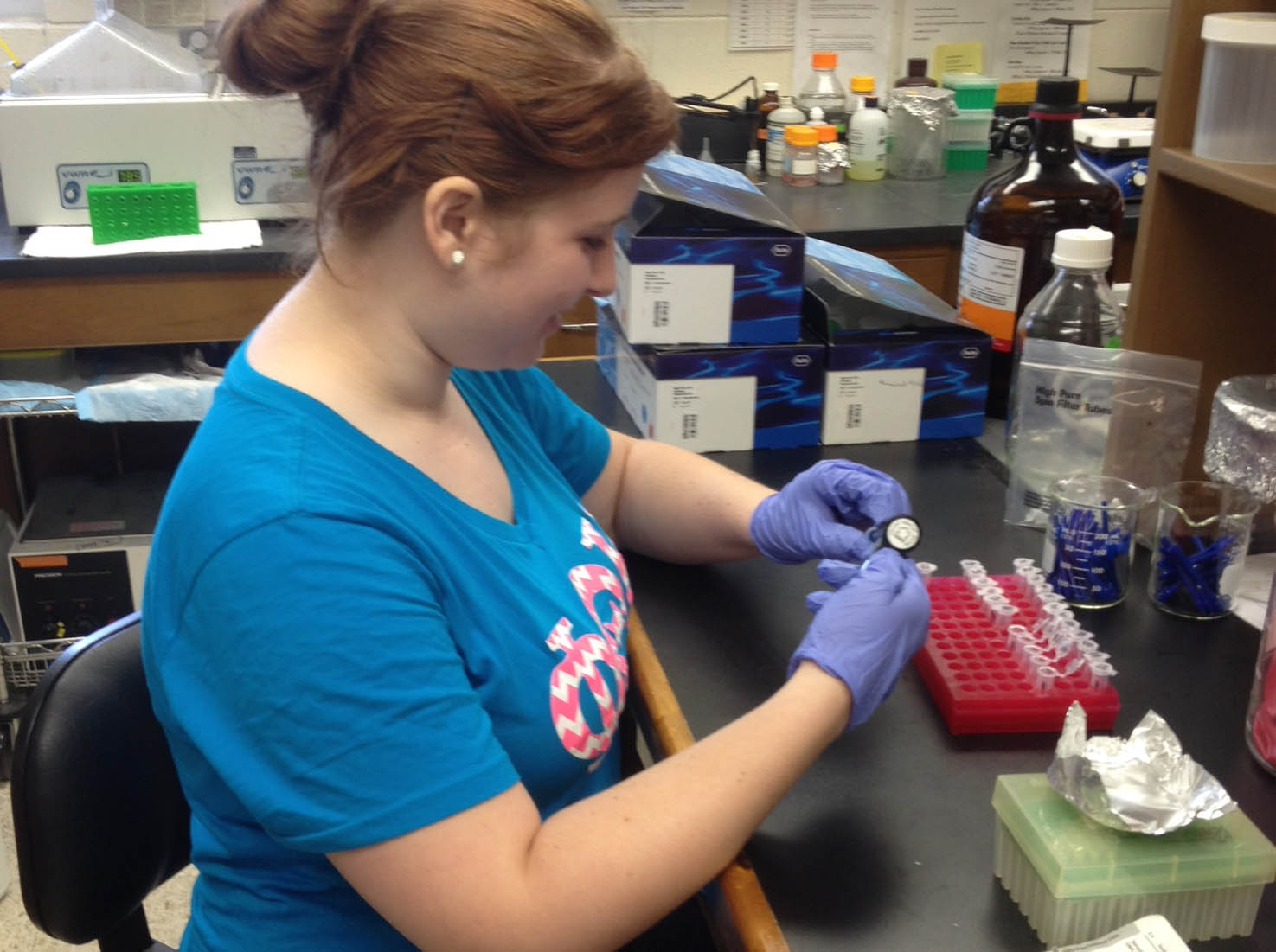Above: Caeleighn Bernard, an intern at USM’s Gulf Coast Research Lab, studies the affects of the white spot syndrome virus on shrimp as part of her research. Brown, who is an MGCCC student at the Jackson County Campus, is the only community college intern doing research under the grant to study WSSV in shrimp. She will present findings from the research, along with her fellow interns, at a national science conference in Virginia this summer.
One of the things you notice about Dr. Christy Philippoff’s office is that students are constantly in and out, seemingly on a mission and not to beg for second chances at assignments or take makeup tests. These students seem more interested in learning and lab work and setting up new internships.
“They are committed to science, to research, on a very basic level, and their enthusiasm is catching!” Philippoff said. “They are examining the world around them and looking for new ways to do things or how to tackle old problems in a fresh way. That’s what science is all about.”
Philippoff works with students enrolled in classes in the science department at Mississippi Gulf Coast Community College’s Jackson County Campus to find and fill internships at local science research facilities like the Institute for Marine Mammal Studies and USM’s Gulf Coast Research Lab. She currently has students doing research internships at both locations. Other students are interns at local animal shelters, wildlife rehabilitation centers, state and local parks, or work with elementary school children to build birdhouses, study migration patterns and learn bird identification.
“The point is for students to realize that science is an integral part of our everyday lives,” she said. “When we research and volunteer and make an effort toward change, we become part of the solution to many of the problems we face in our world today.”
Caeleighn Bernard, who has a paid internship at Gulf Coast Research Lab, is working on a grant program through USM to study the white spot syndrome virus that affects crabs, horseshoe crabs and shrimp. “We are studying the affects on two different kinds of shrimp to see if they react differently, and the virus transmission patterns and to see how different communities react to the virus.” Bernard will be making a presentation this summer on her research, along with follow student researchers, at a national science conference in Virginia.
Brittany Brown worked as an intern at IMMS during the spring semester and has continued to work there during the summer. The main focus of her job has been to answer calls concerning stranding and need for rehabilitation in marine animals such as dolphins and sea turtles. All of the data they collect during their work with stranded animals and in rehabilitation must be reported to the federal government. “Collecting accurate data is very important, and I enjoy working with the staff here to make sure it gets done,” Brown said. “My favorite part of working here is assisting with surgeries to remove hooks and other items, working to help rehabilitate the animals and, most importantly, to help with their release back into the ocean.”
The payoff for most of these students is their obvious passion for science. “Most of the students completing these internships are science majors or have become science majors based on their experiences doing this work,” Philippoff said. “But others, while not science majors, have learned to appreciate the importance of science in making our world a better place. If I can help them find that love and appreciation for science, my job is done.”

